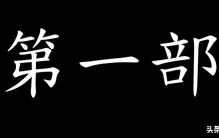ChatGPT列出的的世界10大哲学家和中国10大有个有意思的现象
ChatGPT列出的的世界10大哲学家和中国10大哲学家有个有意思的现象,世界十大哲学家呢,分布的时间是从古代到现代都有的,但是中国时代哲学家们全是在春秋战国时期。
中国在春秋战国之后,为什么就没有哲学家了呢?
Here are 10 famous philosophers:
1. **Socrates** (469/470 BCE - 399 BCE): A Greek philosopher who is widely regarded as one of the founders of Western philosophy.
2. **Plato** (428/427 BCE - 348/347 BCE): A Greek philosopher who was a student of Socrates and founded the Academy in Athens, one of the earliest institutions of higher learning in the Western world
.3. **Aristotle** (384 BCE - 322BCE): A Greek philosopher and scientist who made significant contributions to many fields, including philosophy, science, and ethics.
4. **Immanuel Kant** (1724-1804): A German philosopher who is considered one of the most important figures in the history of philosophy, and is known for his critiques of metaphysics, ethics, and aesthetics.
5. **Jean-Paul Sartre** (1905-1980): A French philosopher who was a key figure in the development of existentialism and phenomenology.
6. **Martin Heidegger** (1889-1976): A German philosopher who is known for his concept of "Being" and his critique of modern technology.
7. **John Locke** (1632-1704): An English philosopher who is considered one of the most influential figures in the development of modern philosophy, and is known for his empiricist theory of knowledge.
8. **René Descartes** (1596-1650): A French philosopher and mathematician who is known for his philosophical method of doubt, which led to the development of modern Western philosophy.
9. **Friedrich Nietzsche** (1844-1900): A German philosopher who is known for his ideas on the "will to power" and the death of God, and is considered one of the most influential philosophers of all time.
10. **Georg Wilhelm Friedrich Hegel** (1770-1831): A German philosopher who is known for his Absolute Idealism and his concept of the dialectical process.Note: The dates listed are approximate and refer to the birth and death years of each philosopher.
China has a rich history of philosophical thought, and there are many notable philosophers who have made significant contributions to the field. Here are some of the most famous Chinese philosophers:
1. **Confucius** () - 551-479 BCE: Confucius is one of the most influential thinkers in Chinese history. He was a teacher, politician, and philosopher who emphasized the importance of ethics, morality, and personal and governmental responsibility.2. **Laozi** () - 6th century BCE: Laozi is the author of the classic Taoist text, the "Tao Te Ching". His philosophy emphasizes living in harmony with nature and accepting the natural order of things.3. **Zhuangzi** () - 369-286 BCE: Zhuangzi was a philosopher and writer who is best known for his book "Chuang Tzu", which contains philosophical dialogues and stories that explore themes such as the meaning of life, the nature of reality, and the relationship between humans and the natural world.4. **Mencius** () - 372-289 BCE: Mencius was a student of Confucius and continued his teachings. He emphasized the importance of human nature and the role of education in developing moral character.5. **Xunzi** () - 313-238 BCE: Xunzi was a philosopher who criticized some of the ideas of Confucius and developed his own views on ethics, politics, and education.6. **Mozi** () - 470-391 BCE: Mozi was a philosopher who founded the school of Mohism. He emphasized the importance of universal love, non-violence, and the abolition of war.7. **Han Fei** () - 281-233 BCE: Han Fei was a philosopher who developed the philosophy of Legalism, which emphasizes the importance of laws and punishments in maintaining social order.These are just a few examples of the many notable Chinese philosophers who have made significant contributions to the field of philosophy.
大家都在看
-
2024全球十大工程成就发布,嫦娥六号、Sora在列 嫦娥六号、文生视频大模型Sora、无人驾驶汽车……12月18日,由中国工程院院刊《Engineering》评选的“2024全球十大工程成就”在京发布。“全球十大工程成就”主要指近5年已经完成且实践验证有效的、并产生全球性影响 ... 世界十大12-18
-
中国工程院发布2024全球十大工程成就 【环球网科技综合报道】12月18日,由中国工程院院刊《Engineering》评选的 “2024全球十大工程成就”发布。据悉,“2024全球十大工程成就”包括:CAR-T细胞疗法、嫦娥六号、低轨通信卫星星座、柔性显示、高温气冷堆 ... 世界十大12-18
-
《物理世界》揭晓2024年度十大科学突破 图片来源:美国得克萨斯大学达拉斯分校图片来源:美国佐治亚理工学院/中国天津大学图片来源:谷歌量子AI公司本报记者 张梦然世界知名的学术期刊《物理世界》2024年度十大科学突破于12月12日揭晓。中国两项科研成果入 ... 世界十大12-16
-
全球十大富豪排行,9个都是美国人:马斯克身家突破4500亿美元站稳第一 本文来源:时代周报 作者:马欢2024年全球亿万美元富豪,无论是人数还是财富,继续大幅增加。今年,既有马斯克这种凭借美国大选脱颖而出,进一步扩大自己领先地位的首富;也有阿达尼这样,受大选影响,财富大起大落 ... 世界十大12-16
-
事发“世界十大经典徒步线路”!一游客坠崖,当地回应↗ 12月14日有网友爆料称云南省迪庆州虎跳峡景区一名游客失足坠崖多名网友发布的视频显示云南省迪庆藏族自治州虎跳峡景区有游客在徒步时从高处坠落山涧,伤情不明,有消防人员抵达现场进行救援。今天(12月15日),极目 ... 世界十大12-16
-
全世界众所周知的10大最美之地,此生必去,中国在榜一个! 有人说,“人生的长度无法延展,但宽度可以。”旅游是打开宽度的一扇门,在有限的生命中感受到无限的美好和壮丽。全世界闻名的10大最美之地,去过一个就值千金,看看你去过几个?01 大溪地(塔希提岛):天堂就在眼 ... 世界十大12-15
-
全球10大陆军,印度竟然上榜,美俄只能排进前五,我国排第几? 全球10大陆军,一个比一个厉害,第一名是谁?欧洲、美洲、亚洲各大国家上榜,奇怪的是,印度也在其中,并且排名还在前几位。在这10大陆军中,美俄陆军只能排进前5,我国陆军又排名第几位?10大陆军又分别是谁?点个 ... 世界十大12-15
-
世界十大骗局之首,被人们常常提起的庞氏骗局,是如何骗人的 世界十大骗局之首,被人们常常提起的庞氏骗局,是如何骗人的 开篇:什么是庞氏骗局?在五花八门的骗局中,有一个名字常被提起,那就是“庞氏骗局”。这个名字听起来挺玄乎,但其实它的原理简单得让人咋舌,又狡猾得 ... 世界十大12-11
-
世界十大国家2024年前3季度GDP汇总:德国稳居第3,印度追近日本 因各国GDP的统计和发布时间有差,2024年都已快接近尾声还有不少国家的前3季度GDP未公布,大国中如巴西、俄罗斯等都是这样,因此暂时连全球经济十大国的GDP运行情况还不能完全呈现,尤其是巴西是非常有可能在3季度末 ... 世界十大12-11
-
全球十大灾难片 世界十大灾难电影排行榜 灾难片排行榜前十名 灾难片总有一种让人难以抗拒的魔力。片中的主人公会为了一线生机拼尽全力超越着人类自身的极限。重重历劫后那种重获新生的希望感,往往也能使屏幕另一端的观众深感生活的满足与幸福。那么,你看过的灾难电影有哪些呢 ... 世界十大12-11
相关文章
- 世界十大国家2024年前3季度GDP汇总:德国稳居第3,印度追近日本
- 全球十大灾难片 世界十大灾难电影排行榜 灾难片排行榜前十名
- 世界十大超凡脱俗的冒险养生度假胜地,唤醒你的狂野灵魂!
- 世界公认的十大名著人生至少要读一次
- 全球十大资产排行
- 世界上前十名大学
- 全球十大畅销智能手机排行:国产仅小米一款上榜
- 全球公认的十大巨星,看看你们都喜欢谁?
- 全世界公认的10大超级巨星,李小龙无缘榜单,贝克汉姆未进前五
- 世界10大伤亡最惨重地震
- 全球公认的世界十大最美地方中国上榜一个,你去过哪?
- 全球10大半导体企业7家实现盈利增长 同比增长38%
- 全球十大黑帮:300年历史人数超90万,至今无人敢惹。中国上榜仨
- 《自然》:全球十大科研城市中国占一半
- 全球公认10大巨星,成龙只排第7名,第一至今无人超越!
- 特朗普上台引发的连锁反应:世界 10 大变化全解析
- 世界十大巧合,你信吗?(适合躲在被窝里看的故事)
- 世界十大最好的轮胎品牌,1、米其林,2、普利司通,3、邓禄普
- 最新自然指数:全球十大科研城市中国占“半壁江山” 北京连续多年居首
- 全球十大零差评电影,你看过几部?
热门阅读
-
十大著名俄罗斯女优,泷泽萝拉竟然是日俄混血女优 07-11
-
十大日本变态整人节目,偶像的穴真的“狠”刺激 07-11
-
十大最污日本动漫,看了会上瘾的日本动漫大片 07-11
-
盘点世界十大天体浴场,满眼望去全是肉肉(图片) 07-11
-
世界十大污动漫,丑陋的美国人污得让人要喷血 07-11
-
十大极品韩国禁片之快乐到死,死也要亲密无间 07-11
-
日本最漂亮的女优前十名 狂野身材等着你蹂躏 07-11
-
世界十大最大的机场,北京大兴国际机场排第三 05-10


















